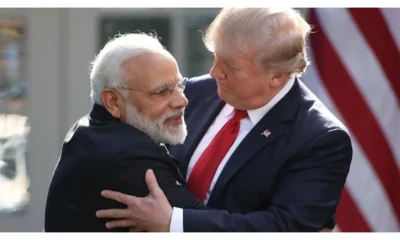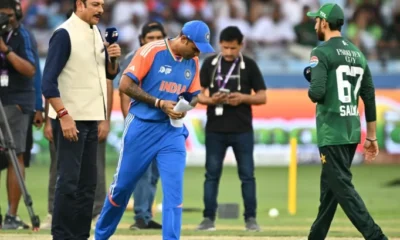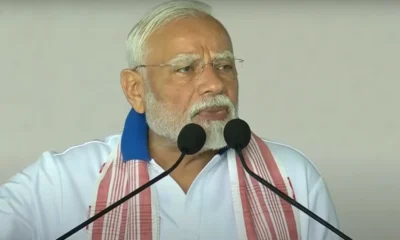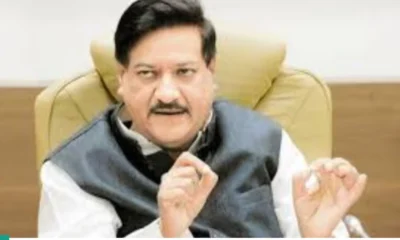Latest business news
Govt puts off single-use plastic ban in view of economic slowdown
Government has shelved its plan of banning single use plastic as it was seen as too disruptive for industry at a time when it is coping with a economic slowdown and job losses.

India News
Union Budget 2026 highlights: Nirmala Sitharaman Raises Capex to Rs 12.2 Lakh Cr, West Bengal Gets Major Allocation
Finance Minister Nirmala Sitharaman is presenting the Union Budget 2026 in Parliament today. Follow this space for live updates, key announcements, and policy insights.
India News
Union budget 2026 to be presented on Sunday with special trading session
The Union Budget 2026 will be presented on a Sunday for the first time in over two decades, with NSE and BSE announcing special trading sessions for the day.
India News
Modi says right time to invest in Indian shipping sector; meets global CEOs
-

 Latest world news18 hours ago
Latest world news18 hours agoTrump announces trade deal with India, claims New Delhi will stop buying Russian oil
-

 India News18 hours ago
India News18 hours agoMarkets surge as Nifty jumps 750 points after India-US trade deal
-

 India News18 hours ago
India News18 hours agoUS-India trade deal to strengthen strategic partnership, says Amit Shah
-

 India News18 hours ago
India News18 hours agoIndia welcomes US tariff cut as PM Modi thanks Trump for easing trade barriers
-

 LATEST SPORTS NEWS18 hours ago
LATEST SPORTS NEWS18 hours agoPakistan looks to force majeure as India boycott threat looms in T20 World Cup
-

 India News14 hours ago
India News14 hours agoSupreme Court raps Meta over WhatsApp privacy policy
-

 India News10 hours ago
India News10 hours agoMamata Banerjee alleges mass voter deletions in Bengal, targets Election Commission
-

 India News10 hours ago
India News10 hours agoRahul Gandhi, Centre clash over Ladakh deepens as eight Congress MPs suspended












